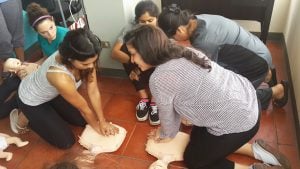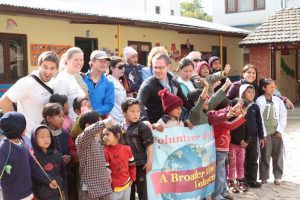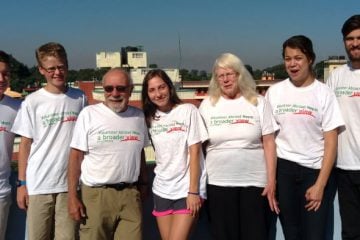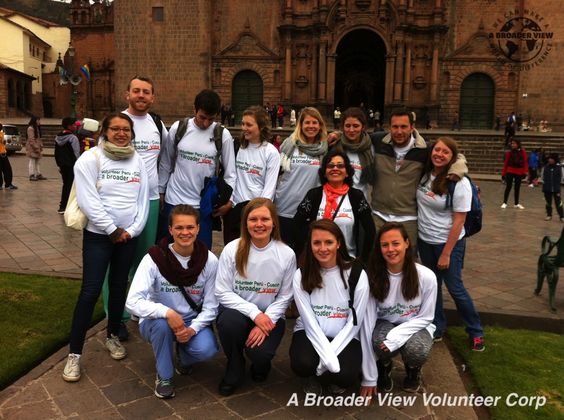Sadly, there are too many communities around the world in need of healthcare support and a few of them are desperate for the medical expertise that the modern world can offer. Some nations are actually struggling to keep their populations in basic good health. Most of these distressed countries gratefully long for any support they can get when it comes to the health of their citizens.
This is where international healthcare volunteers can help tremendously.
Whether you, as a nursing student or new professional, are eager to gain specialized experience, learn about public health issues, or are simply looking to be challenged in a multicultural environment, an international medical volunteer program can be a definitive and rewarding experience. Building your resume, creating a global network, learning a new language all while gaining valuable insight in third world medicine can be a life changing experience. The support our Nurse volunteers offer the doctors and hospitals in the poorest world areas is invaluable. The additional hands allow more patients to be seen, more medical testing to be performed, more medications to be distributed, and more life-saving information to be distributed.
Pre-medical volunteers have the opportunity to assist during the triage and intake of patients, shadow doctors during consultations and examinations, and help pack and sort medications in the pharmacy under the direction of our local pharmacist. Some of our volunteers have offered instruction to new mothers on infant care. Others have given classes on avoiding HIV and other communicable diseases and shadow at surgeries.
Regardless of medical skill level, every volunteer can find a role and has the chance to learn about providing sustainable healthcare to impoverished communities that would otherwise have limited access. In the villages and clinics and small hospitals of these developing nations, there is a place for educated, dedicated medical personnel.
If you are a nursing or public health student seriously considering doing a volunteer abroad experience in a medical setting, read on to see where others have complete worthwhile programs.
- Volunteer Nepal
Honduras
Honduras ranks among the poorest countries in Latin America. Poverty, social and economic inequalities and high levels of insecurity in the country present significant challenges to improving the health status of Hondurans, particularly the most vulnerable: women, newborns, children under five, and those at most risk of contracting HIV. Volunteers in La Ceiba Honduras focus support in various departments in the regional hospital such as Emergency, Maternity, Pediatrics, General and Dental. In the past, healthcare volunteers have had the opportunity to participate in mobile vaccination campaigns and provide education on hygiene, nutrition and preventative healthcare.
On free days’ volunteers have visited nearby Cayos Cochinos or Utila Islands to soak up to sun, while others go to Parque Nacional Pico Bonito for adventure touring.
Uganda
Access to licensed doctors and modern healthcare is limited if not impossible for most people living in Uganda, especially those living in rural communities outside of large cities. Medical mission work is focused includes schools and orphanages visits, and a medical clinic in the village of Bulenga — with a community health outreach focus. Volunteers in Uganda assist nurses to reduce child mortality and provide a strong component of community health education and prevention. HIV and AIDS continue to be a primary concern throughout Uganda so most healthcare programs emphasize education awareness and the importance of testing and treatment of HIV.
Most volunteers cannot leave Uganda without taking a gorilla trek. Uganda has the largest number of gorilla families in the Biwindi National Forres
Guatemala
The most populous country in Central America with 40% of the population from indigenous decent is Guatemala. However, almost 75% of indigenous Guatemalans live in abject poverty. Access to adequate health services in rural areas is almost nonexistent and there are large inequalities present between rural and urban residents. Volunteer programs focus on providing support for mothers, children, and infants in Guatemala’s most undeserved areas. Programs focus heavily on providing maternal and developmental care for Guatemala’s rural and indigenous populations, as well as supporting the elderly. In Quetzaltenango volunteers are immersed in community-based health clinics with the chance to learn how healthcare is provided in rural villages.
With so much Mayan history and national parks nearby volunteers have spent weekends visiting the ruins of Tikal, hiking Acatenango volcano or relaxing lakeside at Atitlan.
Peru
Peru has made immense strides towards improving health care over the last 20 years. However, 1/3 of the population still lack access to basic health care services. Problems persist with inequalities in rural towns and impoverished communities within the larger cities. There is a lack of trained healthcare providers and sufficient funding to meet the needs of the population. In Cusco, Ayacucho and Arequipa Peru volunteers give support to public hospital which provides free health care to the uninsured population, including the elderly. There are opportunities to administer care and support therapy to special needs children and adults, shadow local doctors on rounds, giving oral vaccinations and working with the elderly care programs.
Machu Picchu leaves most visitors speechless. It is a must see while visiting Peru.
Nepal
One of the least developed countries in Asia, about one half of the Nepalese population live in poverty. Nutrition is inadequate; infant and child mortality rates are high, and the disparities between gender and castes still exist. In Kathmandu, and in surrounding villages, access to education is limited and literacy rates remain a barrier to economic progress. Private health care in Nepal is extremely expensive and therefore not readily available to one-half of the population. Health costs are a major cause of indebtedness and impoverishment. Volunteers in Nepal focus support in various departments in a hospital in Kathmandu. Their focus is in departments such as Emergency Medicine, Maternity, Pediatrics, General and Dental. Volunteers have provided earthquake support relief, given vaccinations, observed surgeries, shadowed dentists and doctors, provided health checks and given health and hygiene talks at local schools.
On free days’ volunteers do a safari visit to Chitwan National Park, visit the lake side town of Pokhara, or plan a mini climb of Mt. Everest.






